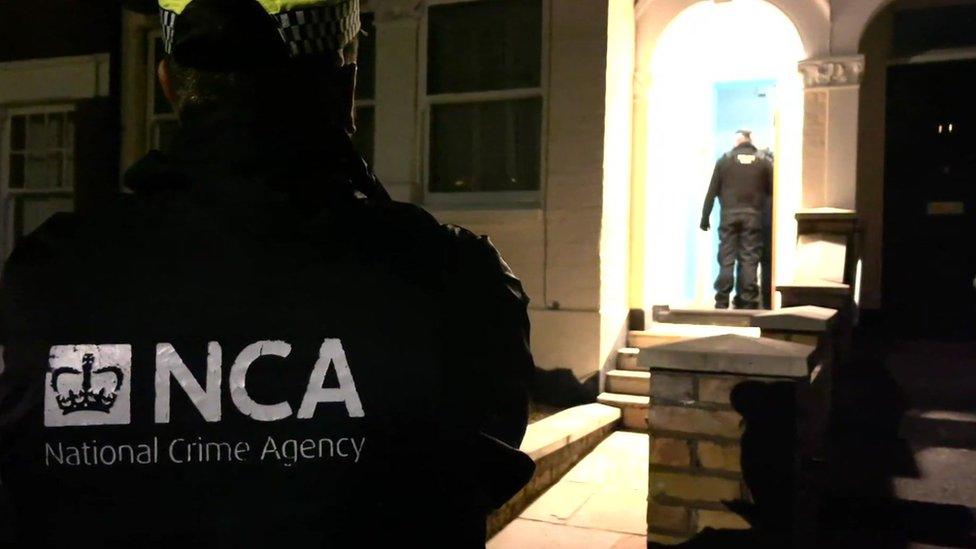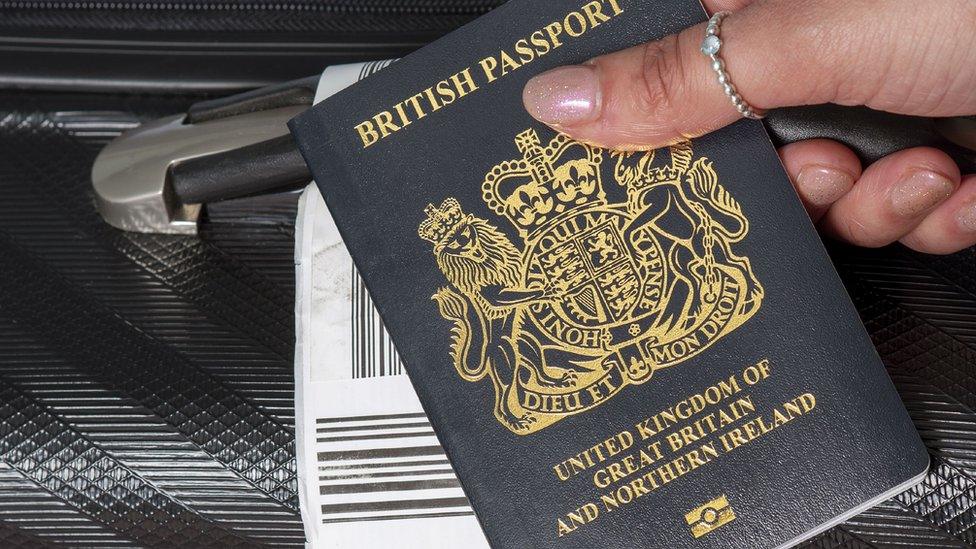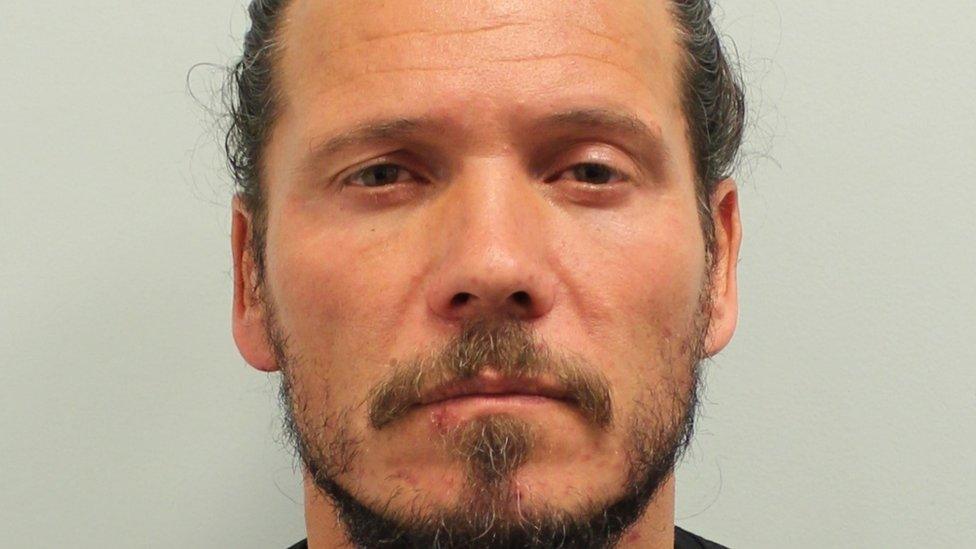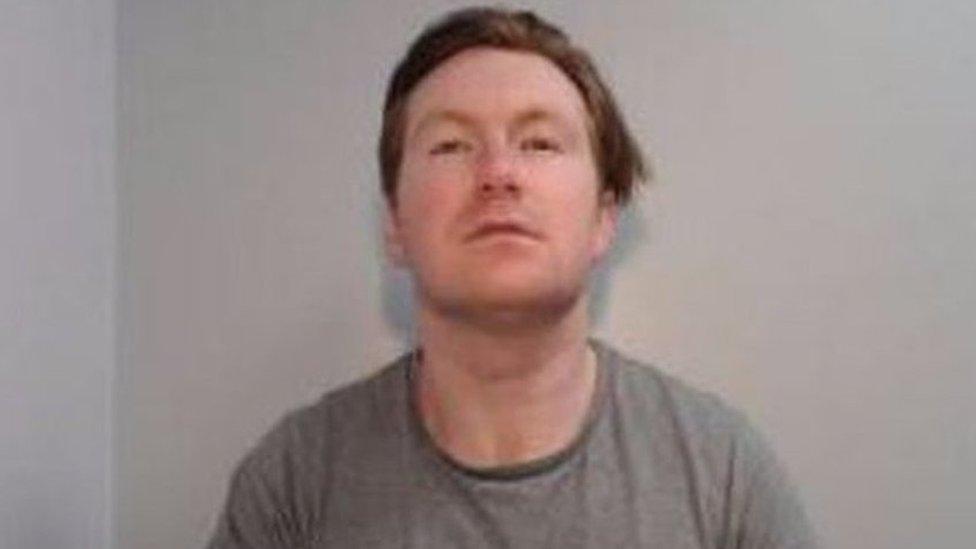Arrests over 'lookalike' fraudulent passports
- Published

Ten people in London and Kent have been arrested on suspicion of supplying fraudulent passports to more than 100 high-level organised criminals.
Early-morning raids in South London, Kent, Essex and Merseyside followed an international police investigation.
The gang is accused of supplying passports to clients including jailed drug dealer Jamie Acourt, a suspect in the murder of Stephen Lawrence.
Those arrested are suspected of using paid "lookalikes" to obtain passports.
The National Crime Agency (NCA) said the gang used the "lookalikes" to apply for legitimate replacement passports, but using a criminal's photo, rather than their own.
Jacque Beer, the NCA's regional head of investigations, said: "This is one of the most significant NCA investigations of recent times.
"We believe that this group's activities has enabled some of the most serious organised criminality in the UK and around the world."
She said if the suspects were convicted, it would have "dismantled a criminal service that allowed drug and firearm traffickers, suspected murderers, and fugitives to evade detection and operate internationally under false identities."
Ms Beer said the hope is the case will lead to the "strengthening of safeguards against criminal exploitation of the UK passport issuing system".
Broker
Officers smashed down the doors of a flat in south London at 05:00 BST on Monday and arrested a 66-year-old man.
He is suspected of being a broker between criminals looking for fraudulent passports, and those willing to supply them.
Six men and three women believed to be members of the crime group were also arrested on suspicion of conspiracy to pervert the course of public justice and making false instruments.
These raids took place in Sutton, Sydenham, Rotherhithe, Hackney, Battersea and Hayes in Kent. The suspects are aged between 34 and 71.
The investigation began several years ago when HM Passport Office discovered criminals were using a "loophole" to obtain legitimate passports with fraudulent details.
According to the NCA, the gang are believed to have sourced passports for specific criminal clients who wanted to hide their identity.
They would find someone who looked like the client and pay them to apply for a replacement passport. Someone else would be paid to countersign the application.
The NCA's Chris Farrimond spoke to BBC home affairs correspondent Tom Symonds about the operation
But when the passport form was sent in, the client's photo would be used instead of the image of the "lookalike" original passport holder.
The NCA alleges the gang found people prepared to, in effect, sell their personal details for passport applications in return for payments of £2,000.
Because the passports were not simply forged and therefore appeared legitimate, they were extremely valuable within the criminal underworld.
Fourteen men suspected of receiving the passports or helping to countersign documents were arrested in Kent, Essex and Merseyside. They are aged between 38 and 73.
The NCA and HM Passport Office have been tracking individuals using the fraudulent passports for years.
As a result, the BBC has been told that more than 100 people said to be senior figures in organised crime have been arrested.

Those arrested are suspected of using paid "lookalikes" who would help criminals obtain genuine passports
Chris Farrimond, deputy director of operations at the NCA, explained: "These were serious criminals, who, for one reason or another, could not make use of their normal passport.
"Either they were on the run, or they were so involved in criminal business that they wanted to keep their activities under the radar."
They are believed to include Jamie Acourt, extradited from Spain and jailed for drug offences.
The NCA suspect he was a client of the gang, and says he would not have been tracked down had it not been for the fact he was travelling on a passport supplied fraudulently.
In 2018, the agency told the BBC that Acourt had been tracked using "intelligence methods".
'Fantastic result'
The NCA believes passports were also supplied to Richard Burdett, jailed with his brother Daniel for importing 16 guns into the UK.
Burdett was arrested in July 2019 after being stopped by police in Amsterdam. To confirm his identity he produced a genuine British passport, bearing his photo but fraudulently obtained.
He had used it to travel to Ireland to evade police in the UK, his trial was told.
Passports were also supplied to organised crime organisations in Scotland and Ireland.
Security Minister Damian Hinds said: "This is a fantastic result and will do significant damage to the serious organised crime groups who want to inflict misery on our shores and around the world."
"The close working between the NCA and Her Majesty's Passport Office has been at the heart of this hugely successful operation."
"The government is working to make the UK border one of the most effective and secure in the world, which will also support our ambition of dismantling ruthless organised crime groups."
Related topics
- Published7 December 2018

- Published22 September 2021
